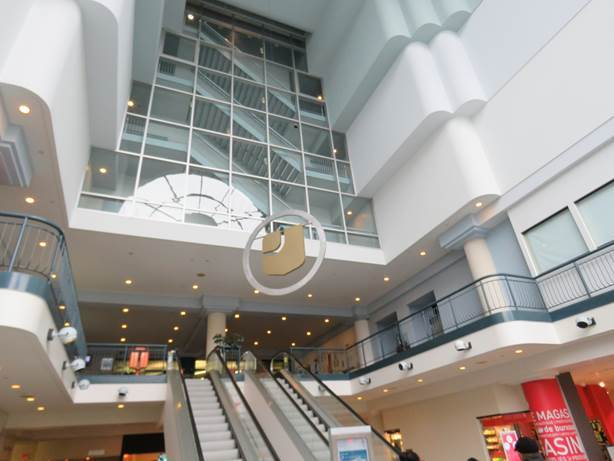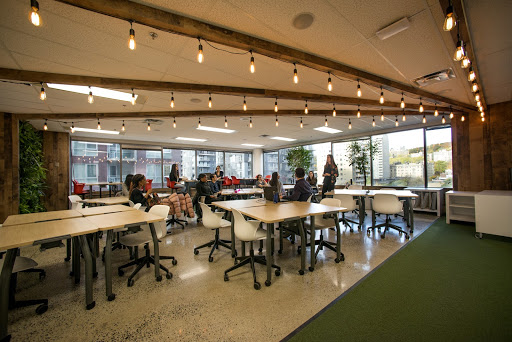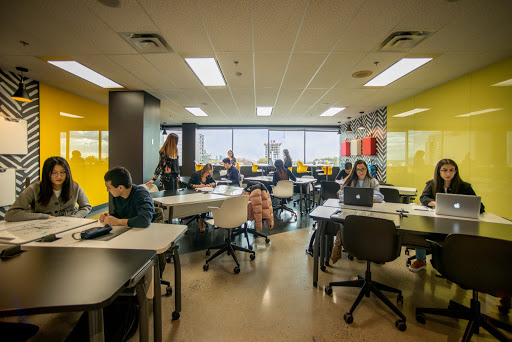LaSalle College Shares its BYOD Implementation Project Findings
Early in the Fall 2018 Semester, LaSalle College in Montreal filed the Rapport du projet BYOD/AVEC 2017-2018, a report on their experience with a Bring-Your-Own-Device (BYOD) implementation. The administration kindly shared this report with Profweb in hopes that the information would be useful to other colleges in the network that might be interested in the benefits and challenges with implementing such a project.
Project Context
The Academic Dean’s office was tasked with updating the college’s educational project over the summer of 2016. Three streams were developed to guide project development in the college, namely innovation, entrepreneurship and citizens of the world.
A pilot project was launched during the Fall semester of 2016 for 2 programs (Fashion Design and Fashion Marketing) in which the students were asked to bring their own laptops. A project resource was recruited and assigned to oversee the implementation of the project and submit an initial report on the experience. This effort was concluded in January 2017.

The Atrium of LaSalle College
Infrastructure Considerations
Although the classrooms that were used by the 2 programs participating in the pilot project still had desktop computers, students were provided network cables for their laptops so that they were not required to connect to the Wi-Fi network.
A number of issues were noted during the pilot project phase, including:
- The quality of the Wi-Fi network in the college
- The classroom layouts
- The omission of training to prepare teachers for the implementation
- The level of techno-pedagogical support available for teachers
- Technical support questions for teacher and students
- The necessity of adopting policies and references related to the use of technology
- Communication strategy to help students during the BYOD implementation
According to LaSalle College’s project report, 69% of the students believed that the infrastructure in the college was not sufficient to support a BYOD project. It was clear that the college would need to work on this question in advance of the Fall 2017 semester.
The classrooms were also missing an adequate number of electrical outlets to charge the laptops students were bringing to class. A number of extensions were added, but the multiplication of cords on the floor increased the risk of safety issues.
Despite these issues, the management was nonetheless encouraged to extend the implementation to 10 additional classrooms in the college for the 2017-2018 academic year.

Imitating the nicest patios in Montreal, the “terrace” classrooms are equipped with charging stations, modern multi-functional furniture and vegetation. (Courtesy LaSalle College).
The Teaching Experience
According the the project report, there was a clear difference in the level of ease of IT-related field teachers and the fashion teachers.
The teachers in the pilot project programs were not necessarily well-versed in the technologies that students would be using and how to support them, which made answering student questions and troubleshooting difficult.
The presence of an educational technology trainee was appreciated by the teachers who was not only present in weekly project status meetings, but also helped teachers in the classroom.
The report clearly identified, however, that additional support and training would need to be provided to teachers, as well as some accompaniment by expert techno-pedagogical resources in order to ensure the success of the project.
Policy and Legal Considerations
From the very start of the project, it became clear that a number of the college’s policies would need to be updated or that new policies would need to be drafted. As an example, the college’s Institutional Policy on Evaluating Learning stated that the use of educational technologies for pedagogical applications was tolerated as long as the program office approved them. In a BYOD project, clearly the mobile devices are not only tolerated, they are necessary!
The college decided to draft a policy that was specific to the use of technologies as well as drafting a guide and informational resources for students. All of this needed to be in place for the Fall 2017 semester.
Interestingly, one of the key issues with a BYOD implementation is that it changes the nature of technical support provided to students. Traditionally, a malfunction with equipment was handled by the IT department. Since the laptops are now owned by the students, there is a legal issue if the college provides technical support and breaks the device. The college does not want to be responsible, so alternatives must be found to support students with technical difficulties.
In the next project phase, IT students would be tasked with providing rudimentary support to other BYOD students, mainly for assisting students who were having trouble establishing a connection with the college’s Wi-Fi network. The IT students were told not to do maintenance work on the computers. Rather, students with these issues were asked to bring their computer to an authorized external technician.

The “Tandem” model of classrooms allows students to learn in a relaxed environment. The cushions on the wall can be removed by the students and be used to sit comfortably with their laptop. Two opposing colours are used to divide the classroom into two zones. (Courtesy LaSalle College)
College-Wide Implementation Phase (2017-2018)
Phase II of the project was overseen by the Associate Academic Dean of the college. The objectives of this phase were multi-fold:
- Considerably improve the Wi-Fi deployment in the college
- Improve the quality and performance of desktop computers that are already present in the classrooms
- Set aside a portion of the existing R&D time for teachers for education technology training
- Plan a major capital investment for the BYOD project in the coming years
- Create clear policies as a framework for the project
- Increase the number of electrical outlets in the classrooms
- Train technicians and teachers so that they may provide assistance, if required
- Ensure that an effective system for managing IT problems is in place
- Continuously monitor teacher and student satisfaction in line with the BYOD project
- Establish an effective communication plan
- Analyze and evaluate each project phase
LaSalle College implemented a number of measures to support teachers with the BYOD implementation. Two training sessions integrating technology as part of classroom management were organized and recorded for subsequent viewing. Two pedagogical days were organized which treated the ICT profile for college students. The local pedagogical coordinator (IT-REP) was tasked with supporting teacher inquiries related to the BYOD implementation. The college also decided to join APOP’s collective training fund. This allowed all employees to benefit from the variety of training and support services provided by APOP. The college is very pleased with the level of service that APOP has provided.
Around 20 classrooms at the college were used for BYOD classes starting in the Fall semester of 2017. Wi-Fi signal boosters were specifically installed next to these classrooms to augment the quality of the signal and additional charging stations were installed for student devices.
Students who were registered or in the admissions process were contacted by e-mail in the Spring of 2017 to be informed that their program would be a BYOD program and the e-mail included instructions on the required laptop model and software for their program. Students were required to use PCs running windows in order to run accounting software in the management program. The college’s website was also updated with this information and generic course plans were revised to include a mention of the BYOD component. Having standard equipment made troubleshooting and support easier for the teachers when students needed help.
The Future
LaSalle College believes that the BYOD project is intrinsically linked to its educational project and that it provides a distinctive feature for the college. Implementing this project had the additional benefit of organically stimulating the integration of skills from the ICT profile for college students.
The college feels that their infrastructure investments will pay for themselves within a perspective of 5 to 8 years, as less computers are purchased and maintenance costs diminish.
The fall 2019 semester will be an important one for the college. They are aiming for 80% of their programs to integrate a BYOD approach. This will involve upgrading close to 20 additional classrooms in order to support BYOD courses.
In closing the BYOD/AVEC report offers some encouragement to other colleges wishing to build their own BYOD initiative:
The colleges who embark on this digital shift will encounter their own challenges. We hope that this brief report will help adequately guide them during this stimulating project. On our end, the College will pursue its project, welcoming a second cohort of students in the BYOD framework for the Fall 2018 semester, all the while ensuring that quality assurance mechanisms are in place to benchmark everything.
For those interested in reviewing the entire report, please contact Mathieu Lepine mlepine@collegelassalle.com at LaSalle College to obtain a copy.

